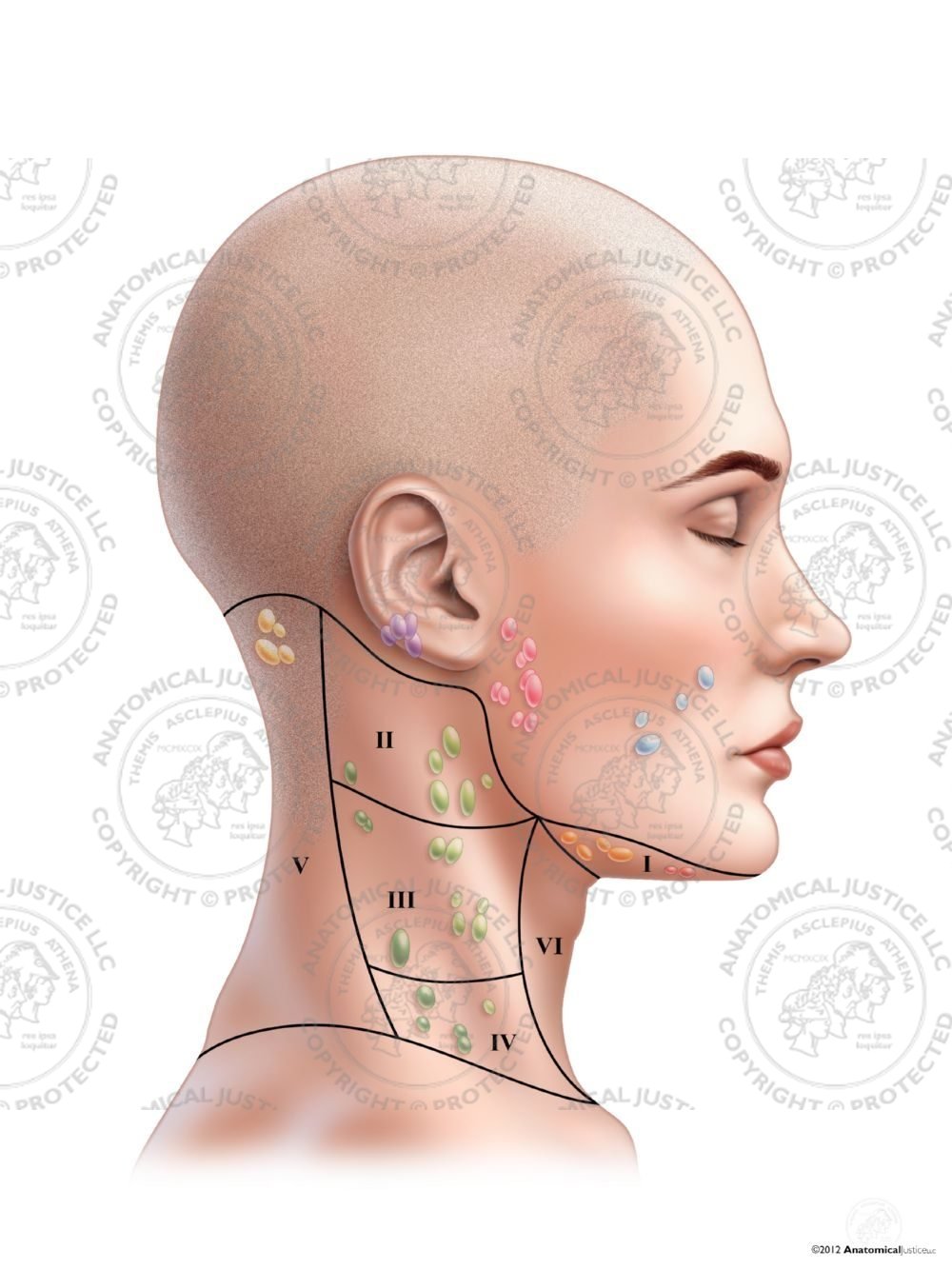

Other symptoms are also a reason to make an appointment: And the swelling should go away within a couple of weeks. You should see your doctor if your lymph nodes appear abnormal."
#Painful lymph nodes in neck skin
The skin over them should not be red, irritated, or warm. They shouldn't feel hard or rubbery, and you should be able to move them. Lymph nodes that are around 1/2 inch or bigger aren't normal. If you can't come up with an explanation, it may be time to get checked out. You'll often have a good idea why a lymph node is swollen - you've got a cold, your tooth is infected, or you have a cut that isn't healing well. It could be something like chickenpox, HIV, or a cancer such as leukemia or lymphoma. When several areas of lymph nodes are swollen, that suggests the problem is throughout your body. Shingles will cause swollen lymph nodes in the area where the rash breaks out.Women who have breast cancer may get swollen lymph nodes in their armpit. When you have strep throat, lymph nodes in your neck may swell.

Often, swollen lymph nodes will be close to where the problem is. Swelling usually signals an infection of some kind, but it could also be from a condition like rheumatoid arthritis or lupus, or rarely, cancer. More immune cells may be going there, and more waste could be building up. Swollen lymph nodes are a sign that they're working hard. These store immune cells and act as filters to remove germs, dead and damaged cells, and other waste from your body. There are more than 600 small, kidney bean-shaped lymph nodes in clusters throughout your body - under your neck, in your armpits and groin, and in the middle of your chest and belly. Your doctor can help you figure out what's causing the changes in your body. If necessary, the doctor may remove the entire lymph node.When you have swollen lymph nodes, your first thought shouldn't be, "I have cancer." They're much more likely to be caused by infections or a disease that affects your immune system, and they will often clear up as your body heals.īut sometimes, cancer cells will travel through your bloodstream and end up in your lymph nodes, or even start there. The cells are then sent to a laboratory where they’re tested for major diseases, such as cancer. This is a minimally invasive test that consists of using thin, needle-like tools to remove a sample of cells from the lymph node. In this case, the doctor may order a lymph node biopsy. In certain cases, even further testing may be needed following the MRI. If the above tests suggest the need for further evaluation, the doctor may order an MRI. Common imaging tests used to check lymph nodes include: If necessary, the doctor may order an imaging test to further evaluate the lymph node or other areas of your body that may have caused the lymph node to swell. This consists of checking the size of your lymph nodes and feeling them to see if they’re tender.Īfter the physical examination, blood tests may be ordered to check for certain diseases. Since certain diseases or medications can cause swollen lymph nodes, giving your medical history helps them find a diagnosis.Īfter you discuss the symptoms with the doctor, they’ll perform a physical examination. The doctor will also ask you about your medical history. This information is vital in helping them determine the cause of your symptoms. If you’ve recently become ill or had an injury, let a doctor know. Sézary syndrome, a rare type of lymphoma.some medications, such as antiseizure and antimalarial drugs.Other causes of swollen lymph nodes include, but aren’t limited to: Lymphoma, which is a cancer of the lymphatic system, also causes the lymph nodes to swell. When cancer from one area spreads to the lymph nodes, survival rate decreases.

Immune system disorders that cause the lymph nodes to swell include lupus and rheumatoid arthritis.Īny cancers that spread in the body can cause the lymph nodes to swell. Serious conditions, such as immune system disorders or cancers, can cause lymph nodes throughout the body to swell. Sexually transmitted infections (STIs) such as syphilis or gonorrhea can bring about lymph node swelling in the groin area. tooth infection, included an abscessed tooth.Swollen lymph nodes in the head and neck may also be caused by infections such as: For example, the lymph nodes in the neck can become swollen in response to an upper respiratory infection, such as the common cold. Lymph nodes swell when an infection occurs in the area where they’re located. Swollen lymph nodes are one sign that your lymphatic system is working to rid your body of infection and illness.


 0 kommentar(er)
0 kommentar(er)
